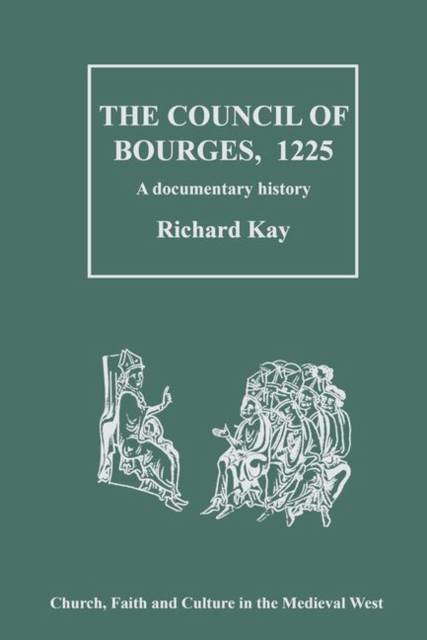
Bedankt voor het vertrouwen het afgelopen jaar! Om jou te bedanken bieden we GRATIS verzending (in België) aan op alles gedurende de hele maand januari.
- Afhalen na 1 uur in een winkel met voorraad
- In januari gratis thuislevering in België
- Ruim aanbod met 7 miljoen producten
Bedankt voor het vertrouwen het afgelopen jaar! Om jou te bedanken bieden we GRATIS verzending (in België) aan op alles gedurende de hele maand januari.
- Afhalen na 1 uur in een winkel met voorraad
- In januari gratis thuislevering in België
- Ruim aanbod met 7 miljoen producten
Zoeken
Omschrijving
Never before had France had a church council so large: almost 1000 churchmen assembled at Bourges on 29 November 1225 to authorize a tax on their incomes in support of the Second Albigensian Crusade. About one third of the participants were representatives sent by corporate bodies, in accordance with a new provision of canon law that insisted, for the first time ever, that there should be no taxation without representation. Basing himself on the rich surviving records, Professor Kay paints a skilful portrait of this council: the political manoeuvering by the papal legate to ensure the tax went through, and his use of this highly public occasion to humiliate members of the University of Paris; and, on the other hand, his failure to win a permanent endowment to support the papal bureaucracy, the bishops' effective protests against the pope's threat to diminish their jurisdiction over monasteries, and a subsequent 'taxpayers' revolt' that challenged the validity of the tax. The book also draws out the importance and implications of what took place, highlighting the council's place at the fountainhead of European representative democracy, the impact of the decisions made on the course of the Albigensian Crusade, the reform of monasticism, and the funding of the papal government which was left to rely on stop-gap expedients, such as the sale of indulgences. In addition, the author suggests that the corpus of texts, newly edited from the original manuscripts and with English translation, could be seen as a model for the revision of the conciliar corpus, most of which still remains based on 18th-century scholarship.
Specificaties
Betrokkenen
- Auteur(s):
- Uitgeverij:
Inhoud
- Aantal bladzijden:
- 620
- Taal:
- Engels
- Reeks:
Eigenschappen
- Productcode (EAN):
- 9780754608035
- Verschijningsdatum:
- 31/05/2002
- Uitvoering:
- Hardcover
- Formaat:
- Genaaid
- Afmetingen:
- 156 mm x 234 mm
- Gewicht:
- 1038 g

Alleen bij Standaard Boekhandel
+ 610 punten op je klantenkaart van Standaard Boekhandel
Beoordelingen
We publiceren alleen reviews die voldoen aan de voorwaarden voor reviews. Bekijk onze voorwaarden voor reviews.









